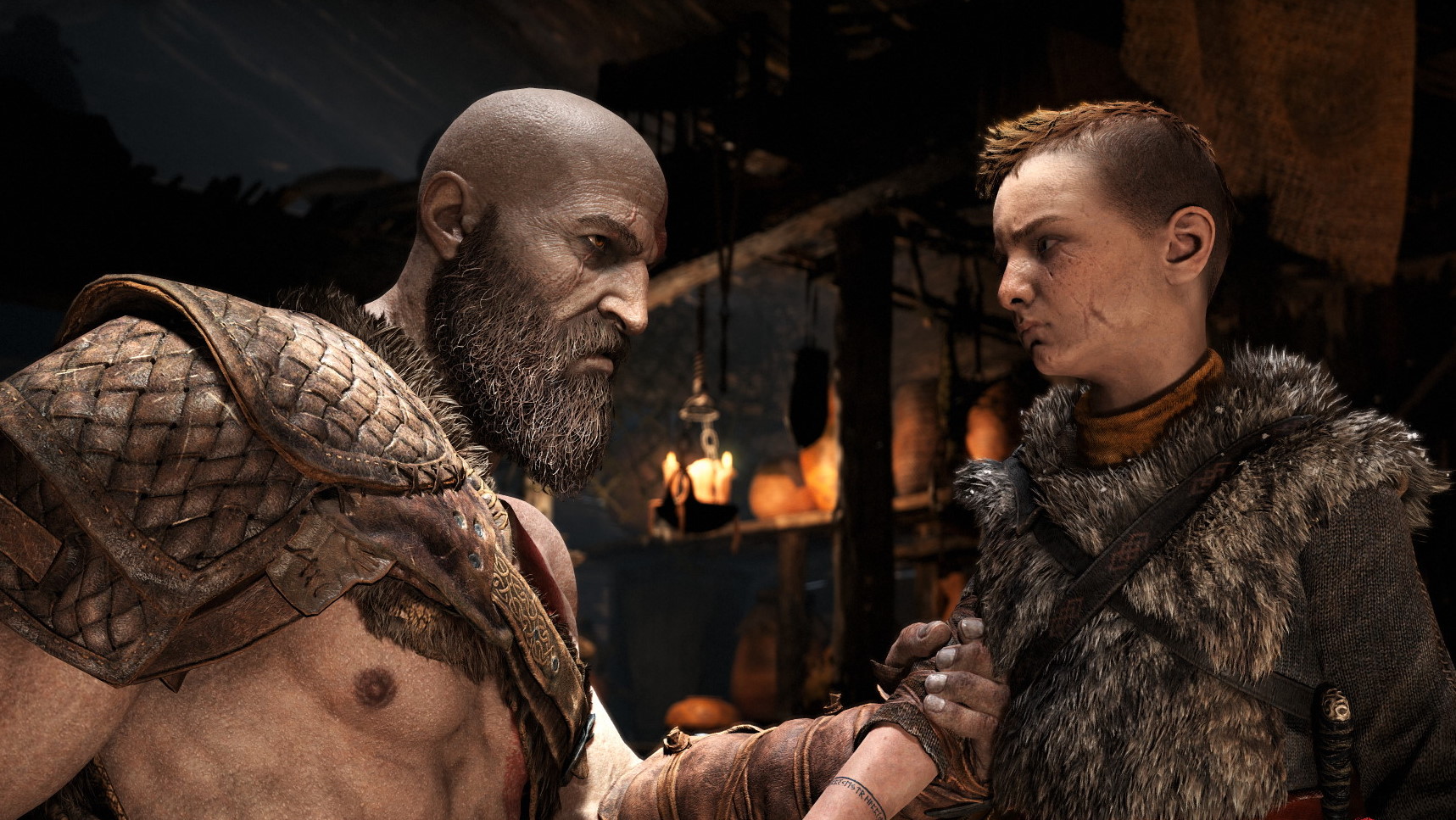Gen Z and Gen Alpha crave games with 'more meaning' and 'personalisation across everything' according to PlayStation exec—who implies that (you guessed it) AI is the answer
AI: It's got what kids crave.

Sony's been on a bit of a bender with AI stuff recently, huh—as I'm sure a recently-misrepresented Neil Druckmann will tell you. AI—or I should specify, generative AI—may prove valuable in game development, but as with a lot of new technologies the actual use cases devs are finding clash severely with the executive pipe dream of paying fewer voice actors and writers in the name of "reactivity".
Flying under the radar of the Druckmann controversy (though nonetheless spotted by IGN) is another ream of buzzwords courtesy of head of PlayStation productions and product Asad Qizilbash, who has a brave new angle on the tech via an interview on Sony's website: You see, AI's got what the kids crave for more reasons like—uh, personalisation, and reactivity, and meaning, and stuff.
"In terms of gaming's future, I envision games becoming more personalised due to advances in technology and AI," Qizilbash says when asked about PlayStation's next 10 years, gazing into his crystal ball.
"... technological advancements will enhance emotional depth in games by allowing characters to be much more emotive and expressive, fostering more evocative storytelling. That's going to help a whole generation of creators be able to just create so much more emotion in the stories. The focus is going to shift from graphics or visuals to immersive narratives that resonate long after the controller is set down."
As we all know, videogames made prior to 2024 have all been about ray-traced graphics and sick 360 MLG no-scopes. Before AI, no one was ever emotionally moved by a game—no one ever put a controller down and felt impacted by the thing they just played. It never happened.
This newfound frontier of immersion and narrative, hitherto just impossible without current technology, is especially relevant to the youth™, Qizilbash argues: "Advancements in AI will create more personalised experiences and meaningful stories for consumers. For instance, NPCs (Non Player Characters) in games could interact with players based on their actions, making it feel more personal." Yeah, if only Baldur's Gate 3 had that, it would've been way better. I would've felt a bajillion immersions.
"This is important for the younger Gen Z and Gen Alpha audiences, who are the first generations that grew up digitally and are looking for personalization across everything, as well as looking for experiences to have more meaning."
The biggest gaming news, reviews and hardware deals
Keep up to date with the most important stories and the best deals, as picked by the PC Gamer team.
The temptation I have to simply tear into this clear bowl of corporate word salad is tremendous, but I'm going to resist in favour of sharing the first time a game really moved me—Supergiant's Bastion. Spoilers, in case you haven't played a game that came out 13 years ago.
In the game's final act, protagonist "the Kid" is presented with a very simple choice between wrath and justice. You can either save Zulf, or leave him to die.
Zulf is a character from a nation of old enemies called the Ura, who betrayed you. However, by the time you reach him to wreck bloody revenge, the Ura have already blamed Zulf for leading you to them. They blame him for the demise of their fellows you fought through to get here. They rough him up and leave him to die.
If you pick him up, the kid staggers through Ura territory with Zulf on his back, shielding him with his body as Ura troops fire upon him, until they all eventually just… stop, and let you go. The fight draining from them in the face of your selflessness. There's no dialogue, but you get a real sense that all of them had the same thought at the same time: 'What are we doing? He's just a kid.'
Plenty of meaning achieved without a deep learning model of any kind, there.
Anyway—yes, AI's got its uses, but developers obviously don't, nor have they ever, needed it to deliver personalised narratives or meaningful stories. The "shift" Qizilbash describes of new technologies letting a "whole generation of creators be able to just create so much more emotion in the stories" already happened decades ago. It happened with Missile Command in the 1980s, an arcade cabinet that captured the raw anxiety of the Cold War with pixels, bleeps and bloops.
Honestly, I think more than anything the statement is just kind of insulting. I'm a young millennial myself, but I know people from Gen Z and Gen Alpha—and beyond some utterly unassailable memes, the kids are alright. Bare minimum, I'm sure they're capable of sniffing out a good story when it's told to them without needing an AI that reacts when you talk about burgers, or a bajillion hours of regurgitated machine-generated content.

Harvey's history with games started when he first begged his parents for a World of Warcraft subscription aged 12, though he's since been cursed with Final Fantasy 14-brain and a huge crush on G'raha Tia. He made his start as a freelancer, writing for websites like Techradar, The Escapist, Dicebreaker, The Gamer, Into the Spine—and of course, PC Gamer. He'll sink his teeth into anything that looks interesting, though he has a soft spot for RPGs, soulslikes, roguelikes, deckbuilders, MMOs, and weird indie titles. He also plays a shelf load of TTRPGs in his offline time. Don't ask him what his favourite system is, he has too many.

